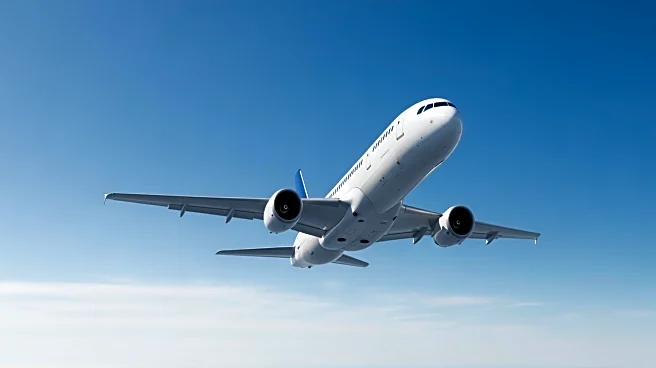What's Happening?
Delta Air Lines has announced the launch of the first-ever direct flights between the United States and Riyadh, Saudi Arabia. This new route marks a significant development in aviation, as it is the first time
a U.S. airline has offered direct service to the Saudi capital. The announcement was made at the Fortune Global Forum in Riyadh, where Delta CEO Ed Bastian discussed the potential for increased travel between the two nations. Despite historical tensions on religious, political, and cultural grounds, Bastian expressed optimism about the route's future popularity, highlighting Saudi Arabia's tourism opportunities and the country's efforts to become a global aviation hub. The new route will connect Atlanta, Delta's largest international gateway, directly to King Khalid International Airport in Riyadh.
Why It's Important?
The introduction of direct flights between the U.S. and Saudi Arabia is a strategic move that could significantly impact global travel and business relations. For Saudi Arabia, this development aligns with Crown Prince Mohammed bin Salman Al Saud's Vision 2030, which aims to diversify the country's economy away from oil dependence by boosting tourism and investment. The direct flights are expected to facilitate business travel, particularly to Riyadh's growing financial district, and attract multinational corporations to establish regional headquarters in the kingdom. For Delta, this route expansion represents an opportunity to tap into a new market and strengthen its partnership with Riyadh Air, further enhancing connectivity between North America and the Middle East.
What's Next?
As the new direct flights commence, Delta and Riyadh Air are expected to continue building their strategic partnership, potentially introducing more routes and benefits for travelers. The success of this route could encourage other airlines to explore similar opportunities, further integrating Saudi Arabia into the global aviation network. Additionally, the increased connectivity may lead to a rise in tourism and business exchanges, contributing to Saudi Arabia's Vision 2030 goals. Stakeholders will likely monitor the route's performance and adjust strategies to maximize its potential impact on both the aviation industry and the broader economic landscape.









